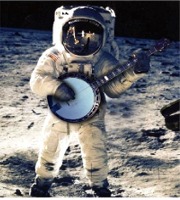City of Lincoln Waites
Law
It appears that at various times the Waites income was in jeopardy from usurpers. These travelling minstrels and other inferior musicians were held in very low esteem by the Waites - who themselves were well trained bands, having each served apprenticeships in the craft of music making. The Waites really wanted rid of these folk, firstly because they were taking work away from Lincoln's own Musicians (the Waites) and secondly because their degree of expertise (or not) was so variable as to give all musicians a bad reputation. The Waites were proud of their status, they enjoyed civic sponsorship and were Officers of the Mayor - alongside the Mayor's Sword Bearer and Mace Bearer. At certain times, this conflict with other music makers led Lincoln Waites to petition the Mayor for rulings to stop other musicians from taking their trade. As it was very difficult to ban them entirely, the ruling would usually take the form of introducing a penalty on any other musicians wishing to play on Lincoln Waites territory. This was a smart move on the Waites part, as the law stated that these fees, fines or penalties would be paid straight to Lincoln Waites. I feel sure they would have welcomed this un-earned income!
1590, 19 January
"At the suit of the Waites it is ordered that no musicians except the Waites do hereafter play at any marriages, unless such musicians gaive to the Waites 2s for every marriage they play at."
Music (for dancing?) at weddings seems to have been a particular issue. This ruling falls short of covering fees for performance of music at any other place or occasion.
1607, 22 October
"No musicians or musician of this City or country elsewhere shall at any time hereafter use any music upon instruments either at any marriage or in any Inn, Ale House or Victualling House, or any other place within this City or the suburbs but only those musicians that wear the City's Livery, without the leave and liking of the City's musicians, the Assize time only excepted."
The ruling specifically mentions the Waites Livery Coats - paid for from public funds. Their uniform of smart red coats would be a fairly good identifier of which musicians were legitimate, and which were not.
The Assizes would have been an exception because any visiting Magistrate, Lord or Nobleman would bring an entourage of cooks and servants, often including any musicians who they were patrons of.
1617, 14 January
"No foreign musicians to present their music for money or gain at any wedding or other meeting if the Waites of the City shall be willing to play, unless it be the musicians of some nobleman to their own master only, at his house or lodging only, under pain of 2s from every housekeeper receiving them and 5s frm the musicians to the use of the Waites, who in case of default are empowered to sue for the same under the name of The Master, fellows and company of Waites of the City of Lincoln."
This ruling introduced fines for the owners of any house where non-approved musicians were allowed to play, as well as the usual fines for the musicians themselves. As before, any income from these fees or fines was given over to the Waites as compensation.









